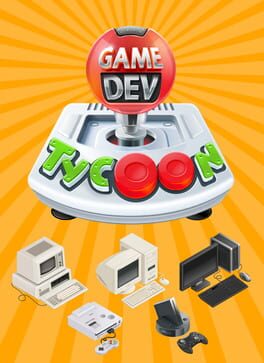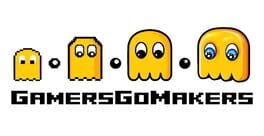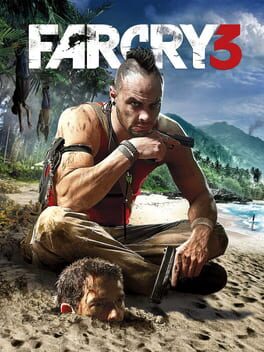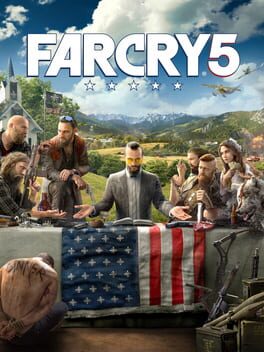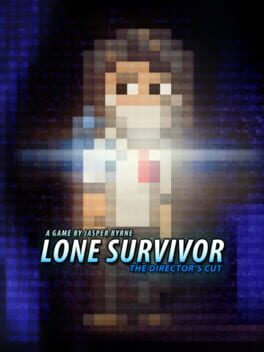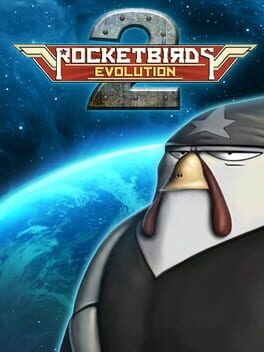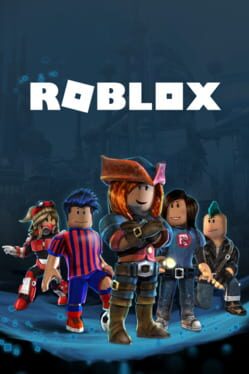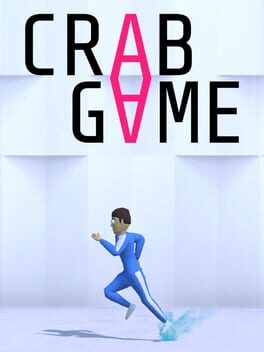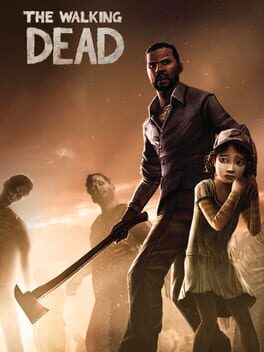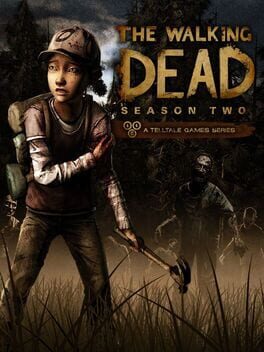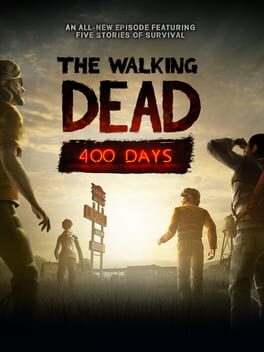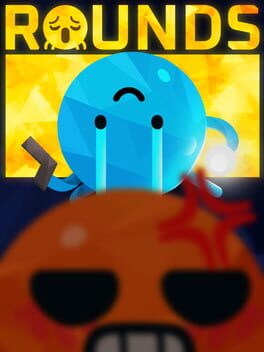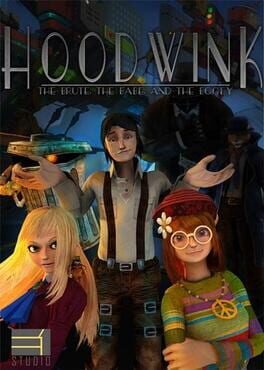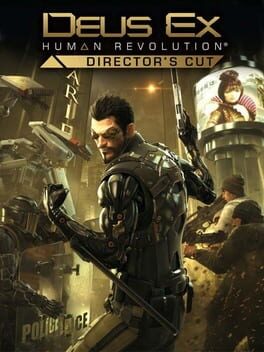Yultimona
2012
"Tycoon" is an inaccurate representation of what this game really is: a pretty solid casual title. The joy of playing GDT isn't in making life-or-death choices to get out of sticky situations, but tuning into its relaxed wavelength and imagining what all of the games you're making end up looking like. I don't recommend a majority of games about making games unless you have a strong imagination. GDT is a lot easier on this front, but it's no different.
2014
Rubbish.
Rubbish that I love, but rubbish nonetheless.
GamersGoMakers attempts to make a more feature-rich version of Game Dev Tycoon, but with worse visuals and humor that's so dated, it feels ancient (who was still making Chuck Norris jokes in 2014?). There are some nice quality-of-life features, and it can almost form into something compelling when everything fits together, but it's woefully unfinished and not nearly as polished as it should be.
The best thing that could be said about GGM is that it's fully customizable. Perhaps the developer didn't intend for you to start each new game with five hundred million dollars in the bank, but with a simple edit to a .txt file in the game's directory, you absolutely can. There's a mod that you can pay for that addresses this "feature," and although all of the added content is neat, I don't actually recommend buying it if you intend to get into GGM for some ungodly reason. Some of the added content is a bit finicky, and, in my experience, it broke my game in ways that didn't make it unplayable but less enjoyable to play.
Rubbish that I love, but rubbish nonetheless.
GamersGoMakers attempts to make a more feature-rich version of Game Dev Tycoon, but with worse visuals and humor that's so dated, it feels ancient (who was still making Chuck Norris jokes in 2014?). There are some nice quality-of-life features, and it can almost form into something compelling when everything fits together, but it's woefully unfinished and not nearly as polished as it should be.
The best thing that could be said about GGM is that it's fully customizable. Perhaps the developer didn't intend for you to start each new game with five hundred million dollars in the bank, but with a simple edit to a .txt file in the game's directory, you absolutely can. There's a mod that you can pay for that addresses this "feature," and although all of the added content is neat, I don't actually recommend buying it if you intend to get into GGM for some ungodly reason. Some of the added content is a bit finicky, and, in my experience, it broke my game in ways that didn't make it unplayable but less enjoyable to play.
2012
The issue with the entries this series past Far Cry 3 is that none of them carry the same purpose, other than to continue working on an established formula to rake in the dough. Far Cry 1 and 2 are arguably tech demos pretty neat (post-mortem edit: I hadn't actually revisited Far Cry 2 when I wrote this). Tech demos Pretty cool games that are fully fleshed out; that can still be enjoyed today and carry their own set of vibes and moods. By the time Far Cry 3 came out, its Open World format wasn't as impressive. To cut a long story short: Grand Theft Auto IV and Far Cry 2 came out in the same year. Assassins Creed started popping off, and Just Cause 2 sprung into being in 2010. There was still some iteration to be done, but generally speaking, the blueprint for these kinds of games was established well in advance.
Surprisingly, what separates Far Cry 3 from the bunch is that it has a story to tell. Its characters have a little more depth to them than just being there to give the player objectives whenever they need to progress. The conflict feels real, and the elements of magical realism give it enough edge to be compelling. The Alice in Wonderland comparisons might be a little on-the-nose, but it never gets so obvious that it gets in the way.
Far Cry 3 isn't a landmark title because of its Open World. I hear that from a lot of people, "oh, if Far Cry 3 weren't so big, Ubisoft wouldn't have recycled the same format for almost ten years." You're barking up the wrong tree; Assassin's Creed was doing the whole rigamarole before 2012. Far Cry 3 is a landmark title for Far Cry because of the man on its poster. Vaas might not be in the game much, but even if you know almost nothing about this game, you likely know his speech on insanity. It became embedded into pop culture damn near the second he said it for the first time. The implication I'm going for here is that this is the point where Far Cry became less ambitious. Every single game in this series has to have an antagonist that's either a dictator or acts eerily similar to one because of Far Cry 3. This isn't all that bad until you consider how Vaas is actually used in Far Cry 3. Vaas is one villain of many, corrupted by a world that's gross and ugly. Vaas isn't the villain in Far Cry 3; its world is. Tell me: outside of the hostile wildlife, cultists, and threat of destruction, what's ugly about Far Cry 5's world? I can tell you; it's an ugly place. But it almost feels contrived in a way that Far Cry 3 isn't. And that goes for most, if not all, of the games that followed in 3's footsteps.
If it weren't for the side quests, which lack the same momentum and creativity as the main quest, this would be an easy four stars. I don't like how compressed the sound quality is, and the multiplayer isn't worth checking out. But the rest of it would still be great. But otherwise, this is still a fun game. If you're tired of how pointless the last games in this series feel, definitely consider checking this one out.
Surprisingly, what separates Far Cry 3 from the bunch is that it has a story to tell. Its characters have a little more depth to them than just being there to give the player objectives whenever they need to progress. The conflict feels real, and the elements of magical realism give it enough edge to be compelling. The Alice in Wonderland comparisons might be a little on-the-nose, but it never gets so obvious that it gets in the way.
Far Cry 3 isn't a landmark title because of its Open World. I hear that from a lot of people, "oh, if Far Cry 3 weren't so big, Ubisoft wouldn't have recycled the same format for almost ten years." You're barking up the wrong tree; Assassin's Creed was doing the whole rigamarole before 2012. Far Cry 3 is a landmark title for Far Cry because of the man on its poster. Vaas might not be in the game much, but even if you know almost nothing about this game, you likely know his speech on insanity. It became embedded into pop culture damn near the second he said it for the first time. The implication I'm going for here is that this is the point where Far Cry became less ambitious. Every single game in this series has to have an antagonist that's either a dictator or acts eerily similar to one because of Far Cry 3. This isn't all that bad until you consider how Vaas is actually used in Far Cry 3. Vaas is one villain of many, corrupted by a world that's gross and ugly. Vaas isn't the villain in Far Cry 3; its world is. Tell me: outside of the hostile wildlife, cultists, and threat of destruction, what's ugly about Far Cry 5's world? I can tell you; it's an ugly place. But it almost feels contrived in a way that Far Cry 3 isn't. And that goes for most, if not all, of the games that followed in 3's footsteps.
If it weren't for the side quests, which lack the same momentum and creativity as the main quest, this would be an easy four stars. I don't like how compressed the sound quality is, and the multiplayer isn't worth checking out. But the rest of it would still be great. But otherwise, this is still a fun game. If you're tired of how pointless the last games in this series feel, definitely consider checking this one out.
2018
If I had one word to describe Far Cry 5, it would be dull.
Its Open World is gorgeous and entices exploration in fun ways. But its lack of variety in objectives dulls that. Its setting is promising, but it doesn't have the balls to commit to anything compelling. Its characters and story are too dull to entice. The music that you listen to while you drive around is dull; somehow, after years of tinkering around with the Open World format, Ubisoft fails to realize that having good licensed and original music is part of the charm.
I could go on. I didn't finish this and I don't intend to, although maybe I'll be bored enough to try it again one day.
Its Open World is gorgeous and entices exploration in fun ways. But its lack of variety in objectives dulls that. Its setting is promising, but it doesn't have the balls to commit to anything compelling. Its characters and story are too dull to entice. The music that you listen to while you drive around is dull; somehow, after years of tinkering around with the Open World format, Ubisoft fails to realize that having good licensed and original music is part of the charm.
I could go on. I didn't finish this and I don't intend to, although maybe I'll be bored enough to try it again one day.
One of my favorite games of all time. The atmosphere, music, and ambiguity of Lone Survivor all make it a masterpiece in my book. The Director's Cut adds a lot of elegant content and is, without a doubt, the best way of experiencing this game.
I totally get that this won't be everybody's cup of tea, and that's fine. At the time, I remember quite a few publications singing this game's praises, but it seems to be primarily a mostly forgotten entry in the pantheon of early 2010s' Indie Horror. After nearly ten years, it still holds up, in my opinion.
If you haven't checked this out and you're curious, the developer, Jasper Byrne, is in the process of remastering it for the PC and Switch. So I would actually suggest holding off until that's done. He's also working on a sequel, but I don't think that that's going to be worked on much until the remaster is done.
If you want to see if this is your thing or not ahead of its rerelease, the developer himself did a live stream of the remaster's alpha build. You can find that here: https://www.youtube.com/watch?v=tfYkbrYqf64
I totally get that this won't be everybody's cup of tea, and that's fine. At the time, I remember quite a few publications singing this game's praises, but it seems to be primarily a mostly forgotten entry in the pantheon of early 2010s' Indie Horror. After nearly ten years, it still holds up, in my opinion.
If you haven't checked this out and you're curious, the developer, Jasper Byrne, is in the process of remastering it for the PC and Switch. So I would actually suggest holding off until that's done. He's also working on a sequel, but I don't think that that's going to be worked on much until the remaster is done.
If you want to see if this is your thing or not ahead of its rerelease, the developer himself did a live stream of the remaster's alpha build. You can find that here: https://www.youtube.com/watch?v=tfYkbrYqf64
Rocketbirds 2 is both a massive step forwards and a few steps back. It took some time for me to love Rocketbirds 2 almost as much as I am endeared to its predecessor, but when you get the hang of things, you'll find a game that manages to make the best of its flaws.
The first thing you'll likely notice if you've played the original Rocketbirds as much as I have is that the voice actors sound different. I can't find any evidence that says who the voice actor for Hardboiled in this is. But I'm assuming it's either the same guy who did the voice for the first game, and his voice sounds different here, or they got a soundalike. Either way, the voice acting still manages to do the campy nature of this game's writing very well and adds a ton of added humor. Rocketbirds 2 still feels like a Saturday Morning Cartoon mixed with an 80s' action flick despite its different art style. That's likely the second thing you'll notice. Rocketbirds: Hardboiled Chicken had this gorgeous 2.5D aesthetic. The characters and cutscenes were all hand-drawn and animated, but the backdrops were this stylish 3D that kept in style with the characters. I've said my piece on how well that's held up, but the critical thing to take out of that is that it's different in Rocketbirds 2. They've cheaped out, and now the game is fully 3D. This doesn't have the same character as the 2.5D, but if you can ignore the stylistic differences, you'll be in for a (mostly) fun time.
What's really changed in Rocketbirds 2 is the combat. Hardboiled Chicken played like a throwback to games like Another World and Blackthorne, so its movement was deliberately clunky, and jumps were hard to control. You shot in a straight line, or you didn't shoot at all. In Evolution, you're given a full 360 degrees to aim with. On top of that, guns feel punchier than in Hardboiled Chicken, and the combat is genuinely fun.
The best thing about Evolution, without a doubt, is its Co-Op. The Co-Op in Hardboiled Chicken was a pretty standard side-campaign that reused some stages from the single-player content to pad out its run-time. Pretty fun, but you wouldn't be remiss if you decided to pass on it. Rocketbirds 2, on the other hand, goes all out. Procedurally generated missions, a fleshed-out progression system, compelling and rewarding Co-Op mechanics. Although the single-player stuff in Evolution is pretty fun, it pales in comparison to the multiplayer content. There are just two issues, though: the net code isn't that great, and if you're looking to play this locally, it takes time to adjust to how aiming works on a gamepad. It feels pretty natural with a PlayStation controller because of how the sticks are laid out, but without aim assist, it can take some time to get used to on an Xbox or Xbox-style controller. Once you get the hang of things, it's good fun. But until then, it might take some convincing to get your friends to try this.
This leaves me to talk about the single-player campaign. It's mostly fun, but it takes some time to find its footing. Although it makes a decent impression with some solid shooting (minus a shotgun that feels kind of weak), the first few stages in Rocketbirds 2 treat you like a child. They aren't tutorials as much as they are "hey, idiot, look over here." There's a decent amount of replay value with signs that are hidden all over the map. Unlike Hardboiled Chicken, finding these signs is more contextual within the boundaries of the map. Instead of positioning enemies into certain places and swapping between different screens, you'll be blowing up walls and kicking bombs around. There are also a few hidden weapons that are great fun to use. One of the most significant accomplishments of Evolution, though, is its improved flight sections. Although I have somewhat of a soft spot for the flight sections in Hardboiled Chicken, I'd be lying if I didn't say going back to them can feel rough. You have to monitor when you're flying and when you're not. The direction you're flying in dictates the direction you shoot in (at least, I think) unless you're falling in the air. It can be pretty fun to work out how that's supposed to work, but it requires patience to sit through the clumsiness of it all, and I know for a fact that it likely turns some people off of that game.
In Rocketbirds 2, you are always in the air. The difference is that, instead of there being a button to fly, there's a button to boost, so there's still a little bit of strategy in how you approach combat. Flight combat in Rocketbirds 2 manages to get at what Hardboiled Chicken was attempting to do while intelligently streamlining it. Evolution has fewer levels, but that might be because almost every level is a little bigger in size. Rocketbirds has made the transition to Metroidvania-style maps and backtracking. Like the flight combat, though, it's streamlined in ways that manage to make you feel like you're clever without doing all that much. Occasionally, it does stumble and is a little confusing or a little too straightforward, but for the most part, it nails what it goes for.
If the original Rocketbirds was a little divisive, I could absolutely see some people not getting past the first level here. Improvements to shooting, map design, and
controls should make this a must-buy for fans of the original, though. And who could forget: New World Revolution did entirely new music for this game, and it's glorious. This was free on PlayStation Plus about a year or two ago, so if you had that at the time, chances are you already have this in your library. The PC version does offer Mouse and Keyboard support, which makes getting used to the controls more accessible.
It might be worth noting that if you're eyeing the physical copy of this for the PS Vita on eBay, you might want to reconsider. I don't know if this is a thing with my copy, but the game version on the cart is permanently the 1.0 version of this game. The serialized IDs between the physical version and the version on the PlayStation Store do not match up. The performance on the PS Vita port already isn't excellent, but it's a lot worse without the updates that addressed it. Still, it's a neat goodie to have if you're a collector.
The first thing you'll likely notice if you've played the original Rocketbirds as much as I have is that the voice actors sound different. I can't find any evidence that says who the voice actor for Hardboiled in this is. But I'm assuming it's either the same guy who did the voice for the first game, and his voice sounds different here, or they got a soundalike. Either way, the voice acting still manages to do the campy nature of this game's writing very well and adds a ton of added humor. Rocketbirds 2 still feels like a Saturday Morning Cartoon mixed with an 80s' action flick despite its different art style. That's likely the second thing you'll notice. Rocketbirds: Hardboiled Chicken had this gorgeous 2.5D aesthetic. The characters and cutscenes were all hand-drawn and animated, but the backdrops were this stylish 3D that kept in style with the characters. I've said my piece on how well that's held up, but the critical thing to take out of that is that it's different in Rocketbirds 2. They've cheaped out, and now the game is fully 3D. This doesn't have the same character as the 2.5D, but if you can ignore the stylistic differences, you'll be in for a (mostly) fun time.
What's really changed in Rocketbirds 2 is the combat. Hardboiled Chicken played like a throwback to games like Another World and Blackthorne, so its movement was deliberately clunky, and jumps were hard to control. You shot in a straight line, or you didn't shoot at all. In Evolution, you're given a full 360 degrees to aim with. On top of that, guns feel punchier than in Hardboiled Chicken, and the combat is genuinely fun.
The best thing about Evolution, without a doubt, is its Co-Op. The Co-Op in Hardboiled Chicken was a pretty standard side-campaign that reused some stages from the single-player content to pad out its run-time. Pretty fun, but you wouldn't be remiss if you decided to pass on it. Rocketbirds 2, on the other hand, goes all out. Procedurally generated missions, a fleshed-out progression system, compelling and rewarding Co-Op mechanics. Although the single-player stuff in Evolution is pretty fun, it pales in comparison to the multiplayer content. There are just two issues, though: the net code isn't that great, and if you're looking to play this locally, it takes time to adjust to how aiming works on a gamepad. It feels pretty natural with a PlayStation controller because of how the sticks are laid out, but without aim assist, it can take some time to get used to on an Xbox or Xbox-style controller. Once you get the hang of things, it's good fun. But until then, it might take some convincing to get your friends to try this.
This leaves me to talk about the single-player campaign. It's mostly fun, but it takes some time to find its footing. Although it makes a decent impression with some solid shooting (minus a shotgun that feels kind of weak), the first few stages in Rocketbirds 2 treat you like a child. They aren't tutorials as much as they are "hey, idiot, look over here." There's a decent amount of replay value with signs that are hidden all over the map. Unlike Hardboiled Chicken, finding these signs is more contextual within the boundaries of the map. Instead of positioning enemies into certain places and swapping between different screens, you'll be blowing up walls and kicking bombs around. There are also a few hidden weapons that are great fun to use. One of the most significant accomplishments of Evolution, though, is its improved flight sections. Although I have somewhat of a soft spot for the flight sections in Hardboiled Chicken, I'd be lying if I didn't say going back to them can feel rough. You have to monitor when you're flying and when you're not. The direction you're flying in dictates the direction you shoot in (at least, I think) unless you're falling in the air. It can be pretty fun to work out how that's supposed to work, but it requires patience to sit through the clumsiness of it all, and I know for a fact that it likely turns some people off of that game.
In Rocketbirds 2, you are always in the air. The difference is that, instead of there being a button to fly, there's a button to boost, so there's still a little bit of strategy in how you approach combat. Flight combat in Rocketbirds 2 manages to get at what Hardboiled Chicken was attempting to do while intelligently streamlining it. Evolution has fewer levels, but that might be because almost every level is a little bigger in size. Rocketbirds has made the transition to Metroidvania-style maps and backtracking. Like the flight combat, though, it's streamlined in ways that manage to make you feel like you're clever without doing all that much. Occasionally, it does stumble and is a little confusing or a little too straightforward, but for the most part, it nails what it goes for.
If the original Rocketbirds was a little divisive, I could absolutely see some people not getting past the first level here. Improvements to shooting, map design, and
controls should make this a must-buy for fans of the original, though. And who could forget: New World Revolution did entirely new music for this game, and it's glorious. This was free on PlayStation Plus about a year or two ago, so if you had that at the time, chances are you already have this in your library. The PC version does offer Mouse and Keyboard support, which makes getting used to the controls more accessible.
It might be worth noting that if you're eyeing the physical copy of this for the PS Vita on eBay, you might want to reconsider. I don't know if this is a thing with my copy, but the game version on the cart is permanently the 1.0 version of this game. The serialized IDs between the physical version and the version on the PlayStation Store do not match up. The performance on the PS Vita port already isn't excellent, but it's a lot worse without the updates that addressed it. Still, it's a neat goodie to have if you're a collector.
2011
As a platform for user-created content, Roblox is fascinating. If games like Phantom Forces, Arsenal, and Bad Company are anything to go off of, it can pull off First Person Shooters shockingly well--granted, the creators put the effort in. Roblox is mainly associated with cute novelties like Jail Break, Adopt Me, and Work at a Pizza Place and although those games aren't for me, I understand and respect their value.
What I don't respect is how Roblox is engineered to favor games built around in-game microtransactions. Let's not forget about how Roblox exploits its young and fascinated user base, either! I can't go into as much detail as People Make Games does (video link is here for the curious: https://www.youtube.com/watch?v=_gXlauRB1EQ), but the general idea is that the odds are stacked against most of its userbase.
An excellent example of the former is a game that I mentioned earlier, Phantom Forces. As somebody who has been playing it for years, I can say that it's a great diet-Battlefield for those who can't afford Battlefield or don't care. But over the years, it's become a total grind to get through. It used to be that you could save up for new weapons with credits you earned by ranking up or rank up to get those weapons in a reasonable timeframe. But the prices have gone WAY up, so getting to access some of the game's new content means you'll either be playing the game for eternity or whipping out your credit card. Neither is fun. Let me also not forget to talk about melee weapons. It used to be that there were only two: a knife and a machete that you could unlock through ranking up. Now there are probably more than twenty, and a vast majority are unlocked through loot boxes. If the fact that the game had to switch from being engineered for fun first and now needs to be made as addictive as possible to keep its userbase scares you, doesn't that say something about the way Roblox is as a platform?
What I don't respect is how Roblox is engineered to favor games built around in-game microtransactions. Let's not forget about how Roblox exploits its young and fascinated user base, either! I can't go into as much detail as People Make Games does (video link is here for the curious: https://www.youtube.com/watch?v=_gXlauRB1EQ), but the general idea is that the odds are stacked against most of its userbase.
An excellent example of the former is a game that I mentioned earlier, Phantom Forces. As somebody who has been playing it for years, I can say that it's a great diet-Battlefield for those who can't afford Battlefield or don't care. But over the years, it's become a total grind to get through. It used to be that you could save up for new weapons with credits you earned by ranking up or rank up to get those weapons in a reasonable timeframe. But the prices have gone WAY up, so getting to access some of the game's new content means you'll either be playing the game for eternity or whipping out your credit card. Neither is fun. Let me also not forget to talk about melee weapons. It used to be that there were only two: a knife and a machete that you could unlock through ranking up. Now there are probably more than twenty, and a vast majority are unlocked through loot boxes. If the fact that the game had to switch from being engineered for fun first and now needs to be made as addictive as possible to keep its userbase scares you, doesn't that say something about the way Roblox is as a platform?
2021
I follow the creator of this for shits and giggles, so I'm a little biased when it comes to talking about his games. But honestly, I don't know what to make of this. It's fun in friends groups, absolutely. But there's something about it that feels unrefined. The movement feels a bit off, pushing people lacks a lot of feedback, and you'll occasionally run into a ramp that you have a 25/50 chance of actually climbing up. Despite a few flawed game modes, the core ideas are strong, and there's a lot of fun to be had here--granted, you play with the right people.
I suppose it shouldn't be all that surprising that a game that emphasizes voice chat has a toxic community, and Crab Game is no exception. Those who are immune to understanding anything other than their selfish needs will claim that this is a good thing, actually. And to be fair, different strokes for different folks. The issue I have with toxicity isn't the toxicity itself; it's the attitude around it. If you're going to be a piece of shit, at least own that and don't act like you're any better than you are in reality. You don't look cool at all, and it's beyond embarrassing for you to play it off like that. Calling these attitudes disingenuous is generous. It's a petty mask at best. Come back down to earth with the rest of us, and we'll party together!
I suppose it shouldn't be all that surprising that a game that emphasizes voice chat has a toxic community, and Crab Game is no exception. Those who are immune to understanding anything other than their selfish needs will claim that this is a good thing, actually. And to be fair, different strokes for different folks. The issue I have with toxicity isn't the toxicity itself; it's the attitude around it. If you're going to be a piece of shit, at least own that and don't act like you're any better than you are in reality. You don't look cool at all, and it's beyond embarrassing for you to play it off like that. Calling these attitudes disingenuous is generous. It's a petty mask at best. Come back down to earth with the rest of us, and we'll party together!
2012
The illusion of choice is something that's hard to get right.
There's this general idea among gaming discourse that the best games are the ones where the choices you make matter, and not in the sense of something like Doom, where choosing the right gun in a specific fight makes it easier. But instead, what your dialog choices lead up to and the implications of the tough decisions the game throws your way are. I'm going to spoil my opinion for you right now: there is no game where your choices "matter." There can't be unless the game is focused ONLY on those choices. Games like Kyle is Famous, and countless one-offs on Itch.io come to mind. But as long as we're talking about games that are focused on their gameplay structure and, above all else, narrative, you can't exactly have a game where a line of dialog spoken to an NPC 30 hours ago yields a different ending.
Choice-based games have to structure themselves based on how their choices are presented. Think of something along the lines of the original InFamous, where hard-hitting decisions are delivered in this comic-book style and always come at the least opportune moments. Life is Strange works, too; think of how that game uses its emotional impact to give the player different options. Both are great games, but if we're talking about how choice-based narratives are paced, the first season of Telltale's The Walking Dead is as good a place as any to really delve into it.
To date, this is probably the most played game in any library of games I own. Yes, I got it on the old PS Vita I asked Santa to give me for Christmas all those years ago, and yes, I haven't beaten it on a single platform that isn't my Vita, even though I own, like, two copies of it on PC. The first time I played this through, I was shocked. My jaw was on the floor, and my heart was torn open. So I went at it another time, and one more time after that. And by the time the second season was rolling around, I was saving up for a physical copy of that, so I didn't have to beg my parents to buy it all digitally for me.
I can say, with confidence, that whenever the game tells you that your choices matter, it's lying to you. At least, in the sense that your choices do matter. The point of that message and every time the game tells you that somebody will remember one of your actions isn't to hammer home that everything will have consequences in the end. But to set an uneasy atmosphere where the people you rely on most could tear you to shreds faster than the zombies of this world could ever possibly hope of doing. The Walking Dead teaches one crucial lesson about choice-based game design: if you want everything to feel like it matters, even if it doesn't, you have to choose your setting carefully. I kept going back to The Walking Dead not because I wanted to see if saving Doug yielded a different ending, but because I wanted to know how that action played out in the setting I was in. Of course, it never quite feels like that, and that's by design. As I said, the idea that all of your choices have tangible consequences is an illusion.
Going back to The Walking Dead in 2021 is a little rough, but that has to do more with the sheer number of times I've sat through this thing than it has to do with any sort of age. If you want to study how games can put their players in challenging situations while having those situations feel natural within the world the game takes place in, this is an easy four-and-a-half stars. If you're playing it for fun? Yeah, it's still pretty good.
There's this general idea among gaming discourse that the best games are the ones where the choices you make matter, and not in the sense of something like Doom, where choosing the right gun in a specific fight makes it easier. But instead, what your dialog choices lead up to and the implications of the tough decisions the game throws your way are. I'm going to spoil my opinion for you right now: there is no game where your choices "matter." There can't be unless the game is focused ONLY on those choices. Games like Kyle is Famous, and countless one-offs on Itch.io come to mind. But as long as we're talking about games that are focused on their gameplay structure and, above all else, narrative, you can't exactly have a game where a line of dialog spoken to an NPC 30 hours ago yields a different ending.
Choice-based games have to structure themselves based on how their choices are presented. Think of something along the lines of the original InFamous, where hard-hitting decisions are delivered in this comic-book style and always come at the least opportune moments. Life is Strange works, too; think of how that game uses its emotional impact to give the player different options. Both are great games, but if we're talking about how choice-based narratives are paced, the first season of Telltale's The Walking Dead is as good a place as any to really delve into it.
To date, this is probably the most played game in any library of games I own. Yes, I got it on the old PS Vita I asked Santa to give me for Christmas all those years ago, and yes, I haven't beaten it on a single platform that isn't my Vita, even though I own, like, two copies of it on PC. The first time I played this through, I was shocked. My jaw was on the floor, and my heart was torn open. So I went at it another time, and one more time after that. And by the time the second season was rolling around, I was saving up for a physical copy of that, so I didn't have to beg my parents to buy it all digitally for me.
I can say, with confidence, that whenever the game tells you that your choices matter, it's lying to you. At least, in the sense that your choices do matter. The point of that message and every time the game tells you that somebody will remember one of your actions isn't to hammer home that everything will have consequences in the end. But to set an uneasy atmosphere where the people you rely on most could tear you to shreds faster than the zombies of this world could ever possibly hope of doing. The Walking Dead teaches one crucial lesson about choice-based game design: if you want everything to feel like it matters, even if it doesn't, you have to choose your setting carefully. I kept going back to The Walking Dead not because I wanted to see if saving Doug yielded a different ending, but because I wanted to know how that action played out in the setting I was in. Of course, it never quite feels like that, and that's by design. As I said, the idea that all of your choices have tangible consequences is an illusion.
Going back to The Walking Dead in 2021 is a little rough, but that has to do more with the sheer number of times I've sat through this thing than it has to do with any sort of age. If you want to study how games can put their players in challenging situations while having those situations feel natural within the world the game takes place in, this is an easy four-and-a-half stars. If you're playing it for fun? Yeah, it's still pretty good.
This review contains spoilers
Without a doubt a weaker game than Season One. It's clear the O.G. writers for Season One walked out fairly early in this sequel's development. It absolutely has its moments: Carver is a fantastic villain, I love the challenging approach they took to Kenny's character, and I love how this game does not go easy on its main character because she's a kid. But, even though I've played through this a good two or three times, I can't say I've ever cared for most of the cast. Whether or not you loved or hated them, the cast in Season One still felt like people. In Season Two, half of the time, they feel like tragedy fodder--which sums up this season fairly well. Season One was about a challenging world, but it focused more on the people in that world than their untimely deaths. There were moments of tragedy, but they always felt graceful. In Season Two? Yeah, fuck it, kill that pregnant woman right before she gives birth. We're not even going to give this character time before we move on to the next setpiece. Traaaagic, bro. That person you were friends with two or three (I don't remember, to be honest) episodes ago? Fuck it, kill her, too. Too tragic, bro. It all feels grim without feeling entirely warranted, like they wanted to raise the stakes that were in the first game without realizing that that's a stupid idea.
I don't love or hate this one; I've always been more split on it. Maybe I'll replay it one day and have more of an appreciation for it or a reason to say the first game's better. But for now, eh?
I don't love or hate this one; I've always been more split on it. Maybe I'll replay it one day and have more of an appreciation for it or a reason to say the first game's better. But for now, eh?
2012
Anna's 'Extended Version' is the definitive way of experiencing this game. It still has a lot of clunk, and it's clear that the development team behind it had more vision than talent. But it's tolerable and, once you're accustomed to all the jank, it can be a scary good time.
The same cannot be said for the original version of Anna. It was generous of Kalypso to package the original version of Anna with the Extended Edition, but my god, the original version does not hold up.
Here are some things that the original version of Anna and its Extended Edition have in common:
- Clunky controls
- Beautiful sounding music
- A spooky atmosphere
- ...they take place within a sawmill, I guess?
And that's it. Now here are the things that are exclusive to this version of the game that makes it the worst possible way of experiencing this game:
- A narrative that lacks any clarity whatsoever and relies far too much on being ambiguous than anything else
- Scares that don't feel handcrafted in any capacity and only serve to be an added gimmick for marketing material
- A frustrating interface that makes puzzle solving a chore
- Puzzles that feel so esoteric in design that it's genuinely baffling that they thought anyone would figure them out without either banging their head against a wall or resorting to a walkthrough
- Small, unrefined spaces that fail to make the most of the game's supernatural setting
- A lack of any challenge to be found
If you're really that curious, maybe check this out? But otherwise, stick with the Extended Edition if you're looking to play this.
The same cannot be said for the original version of Anna. It was generous of Kalypso to package the original version of Anna with the Extended Edition, but my god, the original version does not hold up.
Here are some things that the original version of Anna and its Extended Edition have in common:
- Clunky controls
- Beautiful sounding music
- A spooky atmosphere
- ...they take place within a sawmill, I guess?
And that's it. Now here are the things that are exclusive to this version of the game that makes it the worst possible way of experiencing this game:
- A narrative that lacks any clarity whatsoever and relies far too much on being ambiguous than anything else
- Scares that don't feel handcrafted in any capacity and only serve to be an added gimmick for marketing material
- A frustrating interface that makes puzzle solving a chore
- Puzzles that feel so esoteric in design that it's genuinely baffling that they thought anyone would figure them out without either banging their head against a wall or resorting to a walkthrough
- Small, unrefined spaces that fail to make the most of the game's supernatural setting
- A lack of any challenge to be found
If you're really that curious, maybe check this out? But otherwise, stick with the Extended Edition if you're looking to play this.
This is a tough one for me to grade.
Even back when I was head-over-feels for Telltale's TWD, I wasn't that big of a fan of this and only replayed it a handful of times to 100% its trophies.
400 Days is what most associate downloadable content with: it's concise and doesn't do many new things. It simply takes what's there and tries to build off of it. Here's the problem with that, though: that's something that works in a more gameplay-centric title. Replaying the same level in a shooter might be a little repetitive, but there's still room for me to challenge myself and try new things out. You can't exactly do that with an Adventure game. You talk to the correct characters at the right times, solve the right puzzles, and then you're done.
None of that means that 400 Days never had the opportunity to be great. While your choices don't exactly matter in the base game, a shorter experience with more diverse chapters was a perfect opportunity for them to bake more impactful choices into the overall narrative. Add to that the fact that this is basically a collection of interactive short stories, and it's a real shocker that the player barely has any input in this. There's a lot of potential for gold here, but they dug silver up instead. I can settle for silver, though. It's a little disappointing, but I'll live.
Even back when I was head-over-feels for Telltale's TWD, I wasn't that big of a fan of this and only replayed it a handful of times to 100% its trophies.
400 Days is what most associate downloadable content with: it's concise and doesn't do many new things. It simply takes what's there and tries to build off of it. Here's the problem with that, though: that's something that works in a more gameplay-centric title. Replaying the same level in a shooter might be a little repetitive, but there's still room for me to challenge myself and try new things out. You can't exactly do that with an Adventure game. You talk to the correct characters at the right times, solve the right puzzles, and then you're done.
None of that means that 400 Days never had the opportunity to be great. While your choices don't exactly matter in the base game, a shorter experience with more diverse chapters was a perfect opportunity for them to bake more impactful choices into the overall narrative. Add to that the fact that this is basically a collection of interactive short stories, and it's a real shocker that the player barely has any input in this. There's a lot of potential for gold here, but they dug silver up instead. I can settle for silver, though. It's a little disappointing, but I'll live.
2021
Rounds is a great game.
If you're playing it regularly, it's good fun for a short while. But the real meat and potatoes are found through modding it to have card packs so unbalanced they break the game. Some of the funniest moments I've had in gaming this year are from me obtaining cards that let my bullets wrap around the screen, and explode on impact, and spawn bombs at the same time, all while being fired like a machine gun. And then having the same happen to me, but this time I can fly.
It gets to a point where you stop taking the game seriously and enjoy it for how unabashedly busted and game-like it is. I shouldn't enjoy it, but honestly? It's a refreshing take on a versus game after having spent years of my life playing First Person Shooters, where everything has to be as balanced as Philippe Petit.
In other words, it's my clear pick for the best Multiplayer game of 2021.
If you're playing it regularly, it's good fun for a short while. But the real meat and potatoes are found through modding it to have card packs so unbalanced they break the game. Some of the funniest moments I've had in gaming this year are from me obtaining cards that let my bullets wrap around the screen, and explode on impact, and spawn bombs at the same time, all while being fired like a machine gun. And then having the same happen to me, but this time I can fly.
It gets to a point where you stop taking the game seriously and enjoy it for how unabashedly busted and game-like it is. I shouldn't enjoy it, but honestly? It's a refreshing take on a versus game after having spent years of my life playing First Person Shooters, where everything has to be as balanced as Philippe Petit.
In other words, it's my clear pick for the best Multiplayer game of 2021.
TBD
It might surprise some to find out that Hoodwink, one of the most prominent games to be greenlit during the early days of Steam's Greenlight program, actually saw a release. It might also disappoint that same crowd to find out that it was critically maligned on release.
You will never be able to find out if it truly is as bad as IGN and Gamespot's reviews make it out to be, though. Hoodwink is one of the most unfortunate victims of delisting out there. Technically, you were able to buy it on EA's Origin platform at one point and on various other platforms. But it never saw the light of day on Steam. Trying to find the page on Origin leads to a dead-end, and it's likely that all of the platforms that were selling it are either dead in the water or stopped selling it a long time ago. If there is a free copy of this abandonware somewhere out there, it's likely that it has maybe one or two seeders at the most.
If you want to read more about it, consider checking out a post I wrote to my blog earlier this year on the exact topic: https://yultimona.com/2021/03/14/whatever-happened-to-hoodwink-the-problem-with-forgotten-games-and-preservation/
You will never be able to find out if it truly is as bad as IGN and Gamespot's reviews make it out to be, though. Hoodwink is one of the most unfortunate victims of delisting out there. Technically, you were able to buy it on EA's Origin platform at one point and on various other platforms. But it never saw the light of day on Steam. Trying to find the page on Origin leads to a dead-end, and it's likely that all of the platforms that were selling it are either dead in the water or stopped selling it a long time ago. If there is a free copy of this abandonware somewhere out there, it's likely that it has maybe one or two seeders at the most.
If you want to read more about it, consider checking out a post I wrote to my blog earlier this year on the exact topic: https://yultimona.com/2021/03/14/whatever-happened-to-hoodwink-the-problem-with-forgotten-games-and-preservation/
I would love to play more of this, but I don't know where my Wii U gamepad is and haven't for months. :(
Technically, I own this on PC. But I ADORE controller gimmicks, and the Wii U port of Human Revolution surprisingly delivers in that department. Granted, it's apparent that the game wasn't designed around the Wii U gamepad, and it's not necessary to play through the game. But the inclusion of your map, inventory screen, hacking interface, and so on on a second screen is something that's irresistible to me. There's also a strategy guide built-in. I don't care if you don't need it; that's fucking RAD.
But yeah, anyway, it's a pretty good game.
Technically, I own this on PC. But I ADORE controller gimmicks, and the Wii U port of Human Revolution surprisingly delivers in that department. Granted, it's apparent that the game wasn't designed around the Wii U gamepad, and it's not necessary to play through the game. But the inclusion of your map, inventory screen, hacking interface, and so on on a second screen is something that's irresistible to me. There's also a strategy guide built-in. I don't care if you don't need it; that's fucking RAD.
But yeah, anyway, it's a pretty good game.
